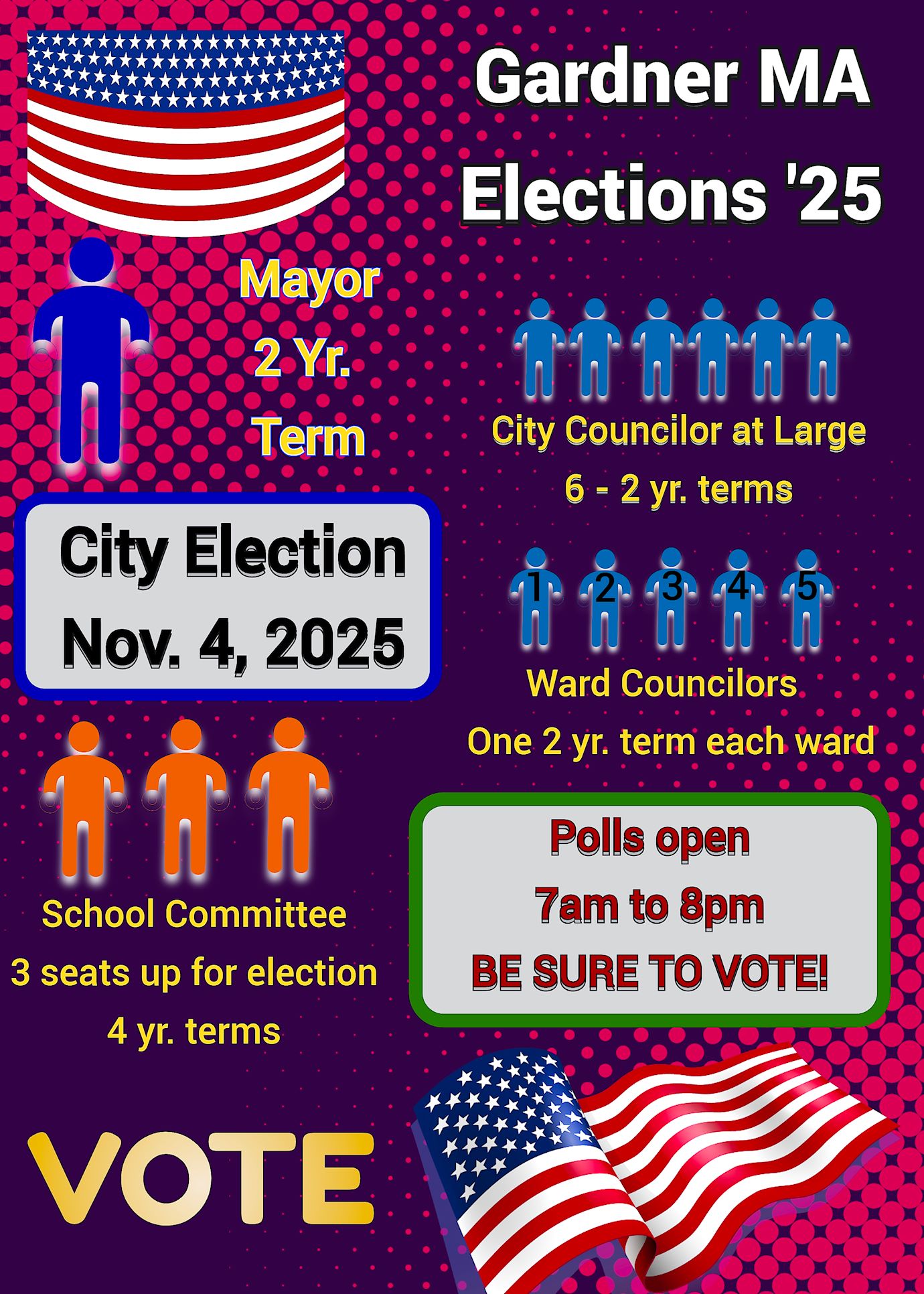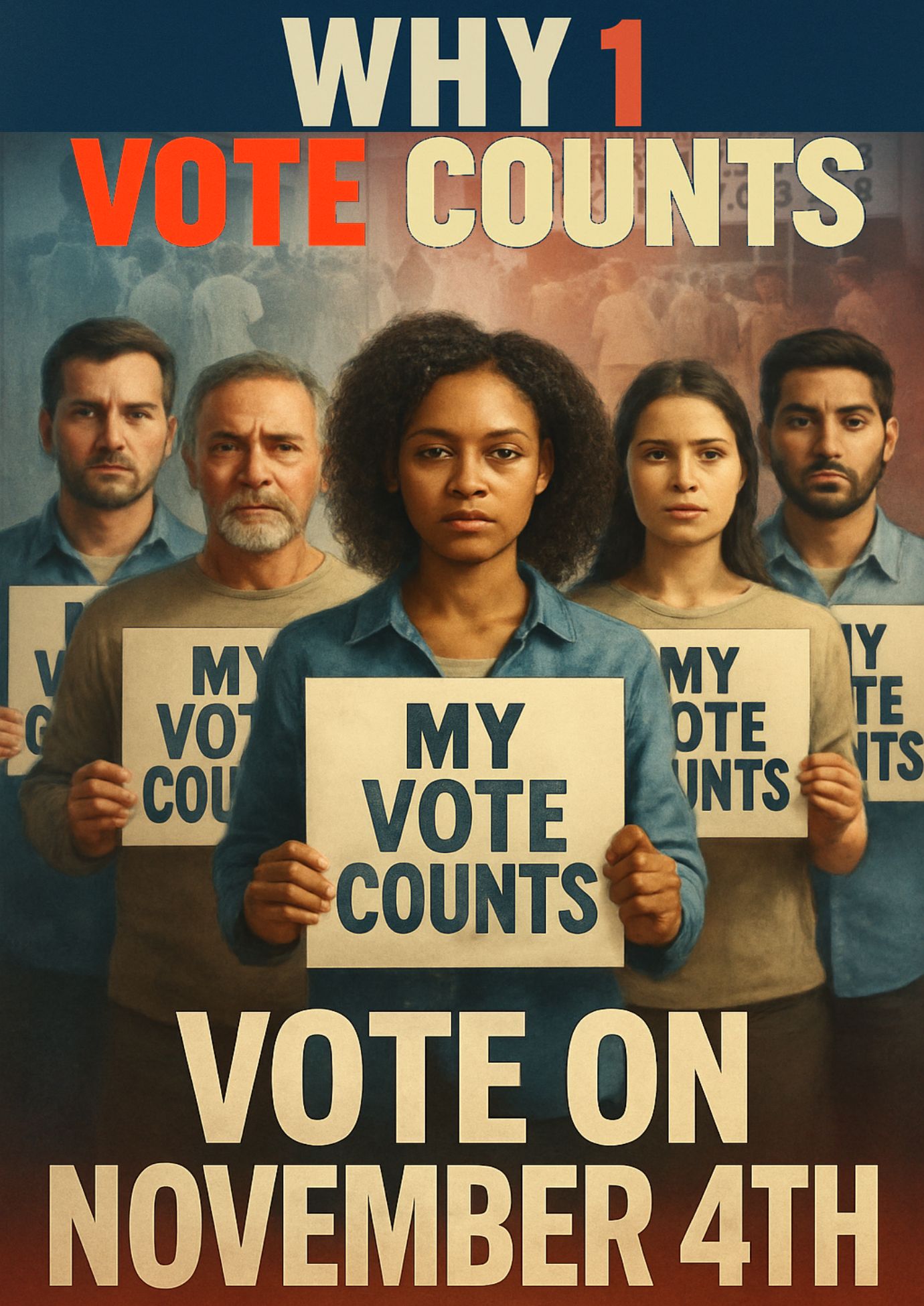Gardner Election is Tuesday November 4th. Polls open at 7am and are open until 8pm.
Mayor: Choose Incumbent Mayor Michael Nicholson or Challenger Kimberly Blake
Ward Councilors: Choose a Councilor to represent your individual Ward
Councilors at Large: Choose up to 6 Councilors at Large. Note: Each vote only counts once. For example, if you decide to vote for only 3 Councilors at Large, each of them receives only one vote from you. Your other 3 votes don’t count for anything and you are letting others choose the remaining Councilors at Large. Further: Some have suggested that each voter has a total of 6 votes which can be distributed as you choose and that is not true. No, if you vote for only 3, each of the 3 doesn’t get 2 votes from you.
School Committee: 3 seats are up for election. While the terms are 4 years, only half of the 6 seats come up every 2 years.
Election Coverage: WGAW Radio at AM 1340, 98.1 FM, Streaming Worldwide AND Gardner Magazine will have full election coverage on November 4th, bringing you the results as soon as they are available.
Why 1 Vote Counts – Werner Poegel Commentary
This commentary covers the times in history where 1 vote made the difference in electing a candidate or deciding an issue. Listen on any device, CLICK PLAY.
If you like the progress of the last 5 years and want it to continue, don’t leave it to your neighbor to cast a ballot. Go out and vote. 1 Vote can make a difference and history proves it.
Here are some examples: In a 2023 city council race in Rainier, Washington, candidate Ryan Roth won his seat by a single vote—his own. His opponent did not cast a ballot. Let me say this again. Ryan Roth showed up to cast a ballot, but the person running against him did not show up to vote. So Roth won by one vote. —- Troy, New York City Council (2017): A city council election in Troy was decided by just one vote. —- Alabama City Council (1992): One vote determined the final member of the Selma, Alabama city council.
Here are some Historical examples.
Rutherford B. Hayes’s presidency (1876): Rutherford B. Hayes was elected president by one electoral vote. The vote of the Indiana representative in the Electoral College was also decided by a single vote.
Andrew Johnson’s impeachment (1868): President Andrew Johnson was impeached but was saved from being removed from office by one vote in the Senate. Just one vote saved Johnson and he remained President.
Thomas Jefferson’s presidency (1800): After a tie in the Electoral College, Thomas Jefferson was elected president by one vote in the House of Representatives.
19th Amendment ratification (1920): One vote in the Tennessee legislature was the deciding factor in ratifying the 19th Amendment, which gave women the right to vote. Somewhat ironic, don’t you think. The 19th amendment was about giving women the right to vote. And it got ratified by just one vote.
Your 1 vote can make a difference. If you want the positive trajectory of Gardner to continue, be sure to vote on Tuesday, November 4th.


